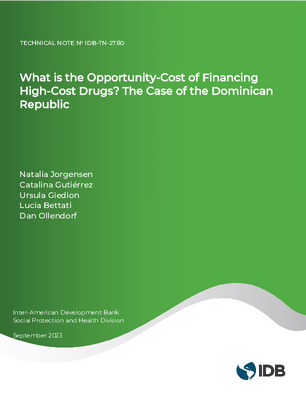
In the last decades, there has been a remarkable increase in therapeutic innovations, many of which have significantly improved life expectancy and quality of life for populations. However, they have also placed pressure on health systems, increasing the need to prioritize interventions in line with the goals of those systems.
Determining coverage and financing in solidarity-based systems with limited resources is a complex challenge. To make this task easier, analytical methods have been developed over the last two decades to quantify intervention benefits and determine the extent to which an investment provides value in terms of the systems goals, beginning with reducing mortality and improving quality of life.
In this context, the evaluation of health technologies and the economic evaluation of health technologies have played an important role in informing decisions regarding their coverage. Firstly, there is a need to prove the clinical and therapeutic benefits of these technologies (and to quantify them). Secondly, there is a consensus that understanding a technologys value requires evaluating it in the context of all alternative possible uses in the system to the resources it demands. In other words, the additional Benefit must be compared to its opportunity cost, defined as the health benefits foregone by investing resources in that technology instead of another within the system.
This article quantifies the opportunity cost, in terms of population health, of the coverage and purchases of high-cost drugs for the Dominican Republic. After this introduction, in section 2 we present the countrys drug coverage context; in section 3 we discuss the methodology used to estimate the opportunity cost; in section 4 we present the evaluation results; and in section 5 we provide our main conclusions and lessons learned.